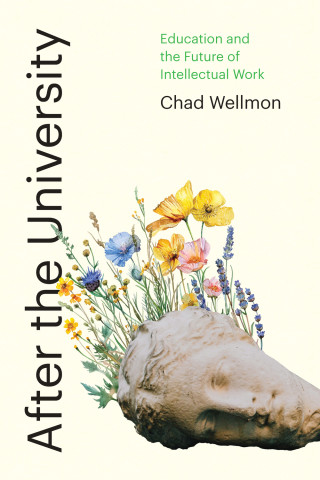
Reviews
Michael M. Crow is the mad scientist of magnifying college matriculation... as president of one of our largest and most innovative universities, Arizona State, Crow has had some remarkable results.
Michael M. Crow is one of a handful of the most creative and able presidents of any American university. I consider any new book that he produces to be an important event. The Fifth Wave should be read by academic, business, and governmental leaders, especially those who have a stake in the continued preeminence of the great research universities—and their future structures—in the United States.
In a perfect world, we would clone Michael Crow, so every university would have the same advantage as Arizona State University. Until that happens, The Fifth Wave is our next best option.
As social and technological complexity accelerates, progress and adaptation are driven by waves of change in all sectors. The advent of the interconnected estate empowers citizens but has brought the imperative for broad access to scientific and technological literacy. The Fifth Wave envisioned by Michael Crow tackles this challenge and moreover assumes responsibility not only for knowledge production but societal wellbeing. In this compelling assessment of the prospects for evolution in American higher education, Crow and William Dabars delineate the parameters of a league of colleges and universities that will scale advanced learning to maximize innovation and societal impact.
The modern American university is a fountainhead of knowledge, a privileged gatekeeper, and an exorbitant money sink. Updating this vital institution for the 21st century is a major challenge, and no one is better placed to show us the way than Michael Crow and William Dabars. Crow is a magician who exploded conventional tradeoffs and made his university both intellectually stellar and inspiringly inclusive.
The Fifth Wave is a plan for building out a research-grade higher education infrastructure proportionate to the task of educating every academically qualified applicant in America. Its ambition is to democratize intelligence. Radically redesigned, these schools would be purpose-built to educate the next generation, by the millions, at socially meaningful scale.
Provocative, encompassing, and grounded, this book is a blueprint for learning that is authentic to the twenty-first century, a time perhaps better characterized as the age of entanglement rather than the age of enlightenment. Unique to this model is the idea of the university as a network of practices and institutions not bounded geographically or politically. John Dewey would be smiling to see how his ideas, including democracy, have evolved for this new age of entanglement.
The Fifth Wave recognizes the urgent need for our public universities to get off the sidelines and engage seriously with the world. Michael Crow and William Dabars make a powerful case for the powerful good that universities can accomplish if academia is bold enough to reconsider how its unique strengths can contribute to a more equitable, sustainable, and informed future.
Michael C. Crow is redefining the way research universities engage with society. In The Fifth Wave, Crow and William B. Dabars call upon us to imagine a new era in American higher education where accessible institutions are dedicated to solving global problems through technological innovation, social entrepreneurship, and world-class knowledge production. All those with a stake in the future of higher education would benefit greatly from reading this book.
In The Fifth Wave: The Evolution of American Higher Education, Michael Crow and William Dabars argue persuasively that a league of universities committed to broad access to world-class knowledge production can deliver both success for individuals and the economic competitiveness of our nation. This is recommended reading for those interested in preparing for the complexities that lie ahead.
In The Fifth Wave, Michael Crow and William Dabars propose a new model for American universities. Their delineation of the history and evolution of American colleges and universities and their discussion of issues facing these institutions highlight the significance and gravity of these issues as well as the substantial contributions that research universities make to society.
Book Details
Preface
Acknowledgments
Introduction: Toward New Models for American Colleges and Universities
1 The Emergence of the Fifth Wave in American Higher Education
2 A Prototype for a Fifth Wave University
3
Preface
Acknowledgments
Introduction: Toward New Models for American Colleges and Universities
1 The Emergence of the Fifth Wave in American Higher Education
2 A Prototype for a Fifth Wave University
3 Boutique Production Strategies and Appropriate Scale
4 Some Historical Perspective on the Fifth Wave
5 Toward a Theoretical and Conceptual Framework for the Fifth Wave
6 Designing Fifth Wave Knowledge Enterprises
7 Some Comparative Perspective on Accessibility and Excellence
Conclusion: Toward Frameworks for Universal Learning
Selected Bibliography
Index







